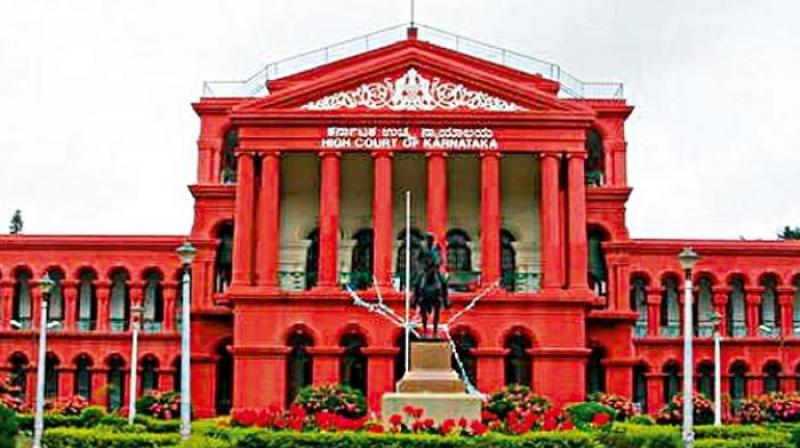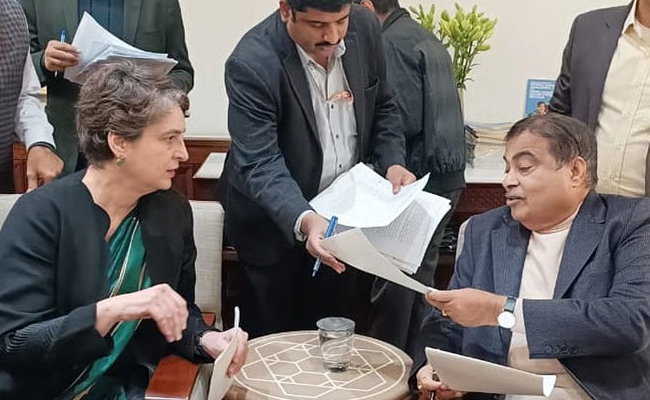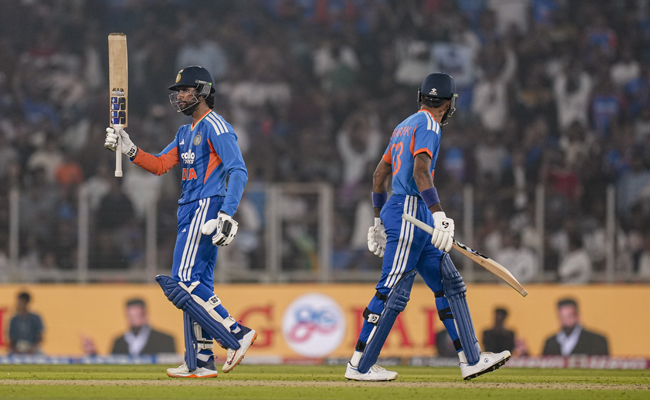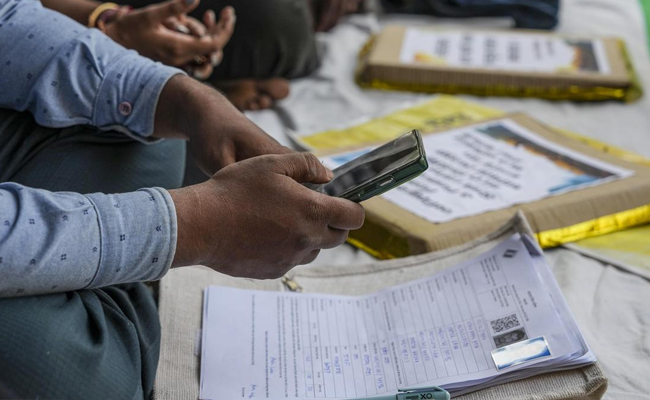Bengaluru, Mar 21: The Karnataka High Court on Tuesday directed the state forest department to submit a reply regarding a public interest litigation (PIL) seeking to limit the speed of trains on the Hospet-Vasco and Londa-Miraj routes during night time as it passes through dense forests of the Western Ghats.
The PIL filed by petitioner Giridhar Kulkarni came up for hearing before the Division Bench of Chief Justice Prasanna B Varale and Justice Ashok S Kinagi.
The court directed the Deputy Conservator of Forest, Belagavi, Haliyal and Dharwad divisions and the Director of the Kali Tiger Reserve to file their replies within two weeks.
The Union government has already filed its statement of objections claiming periodic meeting between railway officials and the forest department officials is being held.
The petition claims that despite directions by the Supreme Court to reduce the speed of trains passing through forests during night to avoid accidents involving wildlife, the trains on these routes continue to operate at high speed.
The petition claims that since 2014, deaths of 60 wild animals including two elephants, 49 Gaurs, five Sambar deer, one sloth bear, one wild dog, one wild pig and one deer, apart from reptiles and amphibians have been reported from these two railway lines.
"Failure of Railways to take necessary steps to avoid accidents of wild animals with trans despite several requests made, is in violation of precautionary principle and the principles of integrated equity and sustainable development upheld by the apex court in many cases," the petition stated, adding representations given to authorities over these issues have been ignored.
The petition also sought directions to the authorities to construct an alternate railway line between Belagavi and Dharwad, while abandoning these two existing lines.
Let the Truth be known. If you read VB and like VB, please be a VB Supporter and Help us deliver the Truth to one and all.
Wayanad/New Delhi (PTI): Congress MP from Wayanad Priyanka Gandhi Vadra on Friday said she met Union Minister Nitin Gadkari, seeking his intervention to expedite pending road infrastructure works in her constituency, including those aimed at addressing landslide issues at the Thamarassery pass.
Sharing photographs of the meeting on the social media platform 'X', Priyanka said Gadkari, the Union Minister for Road Transport and Highways, heard her concerns and sought updates from the relevant officials.
In her post, she expressed hope that the pressing issues she raised, which directly affect public safety and daily life, would receive the attention and urgency they deserve.
“Met respected Gadkari to raise issues concerning my constituency, Wayanad, and urged that pending works be expedited without further delay. He was kind enough to hear my concerns and get updates from the relevant officers,” she said.
ALSO READ: PM, Union ministers, Priyanka Gandhi, others meet Speaker Birla after Lok Sabha adjourned sine die
“I sincerely hope these pressing issues, which directly affect people’s safety and daily lives, will receive the attention and urgency they deserve,” she added.
A day earlier, Priyanka had sought an appointment with Gadkari in Parliament, saying she had been seeking an opportunity since June to discuss issues related to her constituency.
Responding to her request, the minister had said his doors were always open and that she could meet him at any time.
She subsequently met him at his office later the same day.
Met respected Shri @nitin_gadkari to raise issues concerning my constituency, Wayanad, and urged that pending works be expedited without further delay.
— Priyanka Gandhi Vadra (@priyankagandhi) December 19, 2025
He was kind enough to hear my concerns and get an update from the relevant officers.
I sincerely hope these pressing issues… pic.twitter.com/UkxnXP6gxn





